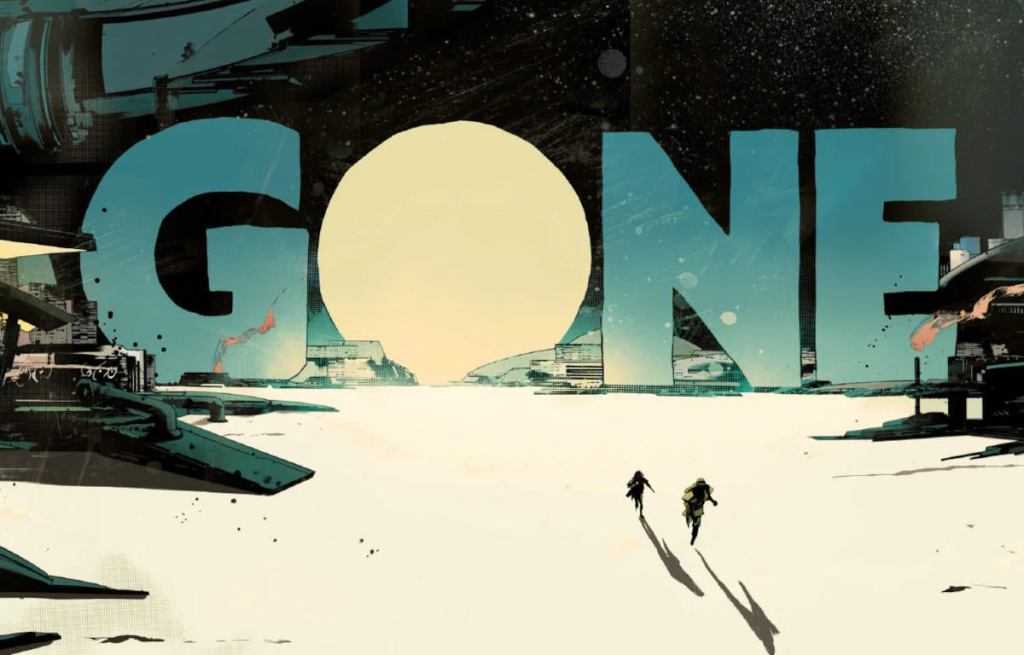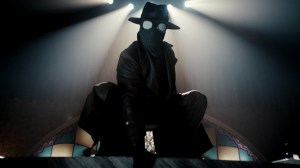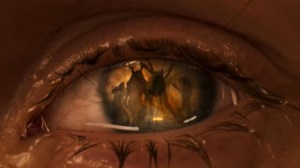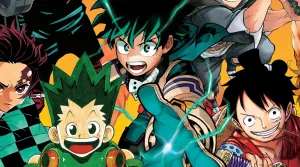Inequality and oppression are themes that, unfortunately, are all too relevant to far too many people. Those themes color Gone #1, the new comic by writer and artist Jock, and the first non-anthology release from new publisher DSTLRY. The book’s protagonist is a young girl named Abi who lives in an impoverished settlement on a planet used as a stop for starships servicing the wealthy in the nearby city. Abi’s father used to work on those ships, but now she’s reduced to stealing food and supplies from the vessels to support herself and her mother, who is pregnant with another child.
Videos by ComicBook.com
After a routine raid goes wrong and Abi comes home empty-handed, Abi, against her mother’s wishes, takes a chance on a riskier raid that involves remaining aboard a large ship even as it begins its ascent. When two of Abi’s fellow scavengers turn out to be revolutionary saboteurs, Abi’s desperate act of survival becomes entangled in a more blatant display of political resistance that ends with her and the saboteurs stuck as stowaways aboard the ship.

The premise is solid enough, but the devil is in the details, or, in this case, the lack of them. Jock’s story paints with broad strokes, assuming that readers are familiar enough with situations where such stark inequality is evident, or at least stories with similar setups, that they’ll fill in the blanks. Perhaps it’s an attempt to emphasize the universality of such a struggle.
If that’s the case, then it falls short. The lack of specifics leaves the story feeling ungrounded. Proper nouns are scarce. Even the revolutionaries seem unsure of who they’re angry at, crying out, “Smash the corruption!” and “Death to false leaders!” What corruption? Which leaders? Are you sure you have the correct address? The lack of specificity reduces the themes to ornamentation, giving only the impression of oppression and reducing class division to narrative wallpaper.
While the narrative milieu is lacking, some strong notes can be found in the complexities of Abi’s predicament. She’s young enough to seemingly not fully understand how she and her family wound up in such dire straits. She still admires the city’s beauty from afar and, once stuck aboard the ship, finds herself relating to the wealthy couples she sees through the vent grates more than the radicals who sleep in the ship’s bowels with her. As Abi is forced to leave home, she’s also pushed past a moral line when she spaces some of the ship’s guards to ensure her friends—those who came with her who were not in on the revolutionaries’ plans—can get off the ship in time to return home. Gone #1 sets Abi up to undergo a coming of age alongside a political awakening that is tied to the idea that acts of survival cannot be disentangled from politics. Whether she accepts or rejects that idea is the question.
The murky moral waters that Abi finds herself treading are reflected in Jock’s artwork, with its thick lines and heavy shadows. Jock’s colors (with assistance from Lee Loughridge) contrast the earthiness of Abi’s rundown encampment with the soft, prosperous blue of the city and its ships, with one standout page framing that literal divide from a distance. Jock proves capable of effectively framing more intimate moments as well. The only time we see a hint of that city glow in Abi’s world is in a closeup of her eye as she resolves to disobey her mother. A top-down look at her living arrangement hidden aboard the ship tells readers all they need to know about her state of mind after weeks of near-solitude.
While Gone #1’s visuals are as strong as anyone familiar with Jock’s work would expect, its vagaries fail to build a setting readers can believe in, leaving much of the issue’s narrative scaffolding feeling like half-formed thoughts in Jock’s mind. However, digging deeper into the issue, there’s potential in that. Abi exists in the eye of a stormy swirl of conflict, and following her as she works her way through it all, assuming the narrative doesn’t shy away from the thornier implications, may yet prove to be worthwhile reading.
Published by DSTLRY
On October 25, 2023
Written by Jock
Art by Jock
Colors by Lee Loughridge, Jock
Letters by AndWorld Designs
Cover by Jock








